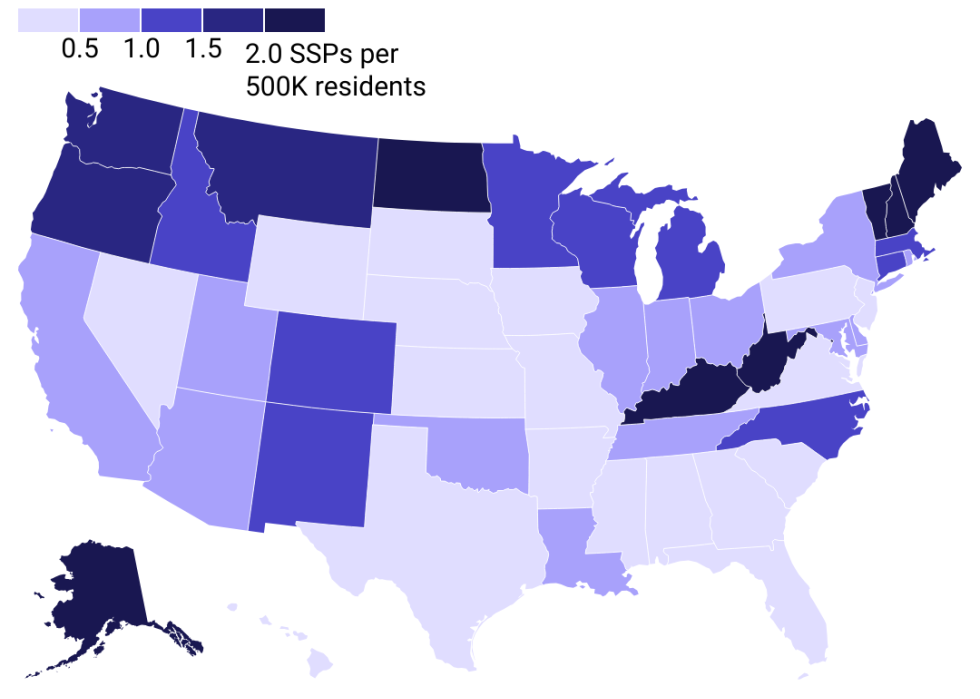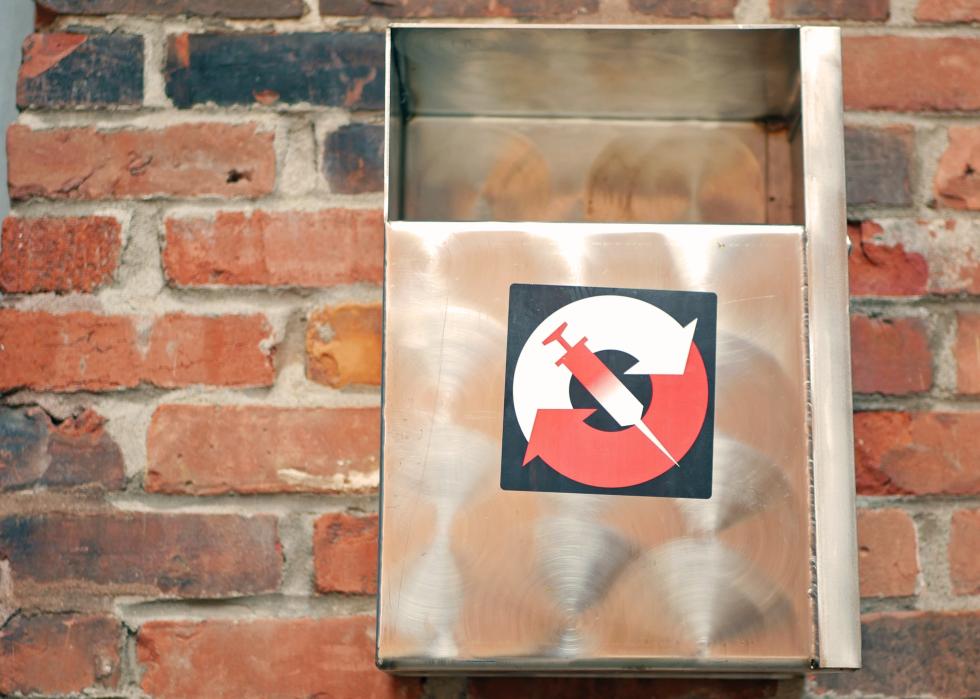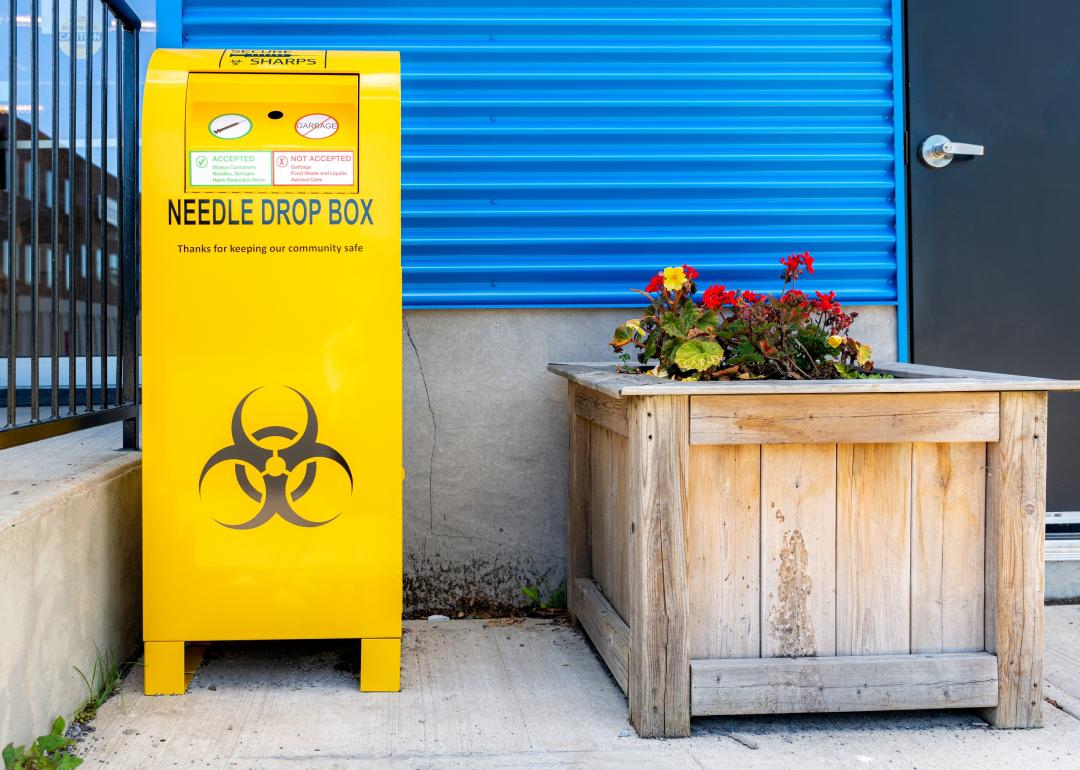How syringe exchanges in Kentucky reduce the spread of disease

Despite the lifesaving potential of these kinds of programs, syringe exchanges were federally banned at the national level from 1988 to 2015. A study published in the International Journal on Drug Policy attributes the end of the ban to shifting perspectives and lessons learned during the HIV/AIDS epidemic.
The rise of HIV infection related to the growth of the opioid epidemic in the early 2010s was powerful enough to sway politicians who had been reluctant to embrace syringe exchanges. States in the years since passed their own laws to create exchange programs. Most recently, a bill authorizing community syringe exchanges passed in the Nebraska Legislature but was ultimately vetoed by Gov. Jim Pillen.
Syringe exchanges in Kentucky include:
Adair County Syringe Exchange Program
Columbia, Kentucky
Bath County Syringe Exchange
Owingsville, Kentucky
Bourbon County Syringe Service Program
Paris, Kentucky
Boyle County Health Department Syringe Exchange
Danville, Kentucky
Bracken County Health Department SSP
Brooksville, Kentucky
Breathitt County SSP
Jackson, Kentucky
Carroll County Health Center
Carrollton, Kentucky
Carter County Syringe Exchange
Grayson, Kentucky
Christian County Health Department
Hopkinsville, Kentucky
Clark County Health Department Needle Exchange Program
Winchester, Kentucky
Clay County Health Department - KY
Manchester, Kentucky
Elliott County Syringe Exchange
Sandy Hook, Kentucky
Floyd County HARM Reduction
Prestonsburg, Kentucky
Franklin County Syringe Exchange
Frankfort, Kentucky
Gallatin County Health Center
Warsaw, Kentucky
Graves County Exchange
Mayfield, Kentucky
Groups Recover Together
Owensboro, Kentucky
Harrison County Needle Exchange Program
Georgetown, Kentucky
Hopkins County Health Department Syringe Exchange Program
Madisonville, Kentucky
Jessamine County Syringe Service Program
Nicholasville, Kentucky
Knox County Syringe Service Program
Barbourville, Kentucky
Laurel County Harm Reduction
London, Kentucky
Lexington-Fayette County Health Department
Lexington, Kentucky
Lincoln County Harm Reduction Syringe Exchange Program
Stanford, Kentucky
Louisville Metro Syringe Services Program
Louisville, Kentucky
McCreary County SSP
Whitley City, Kentucky
Owen County Harm Reduction Syringe Exchange Program
Owenton, Kentucky
Pendleton County Harm Reduction Program
Falmouth, Kentucky
Pulaski County Syringe Exchange Program
Somerset, Kentucky
Rowan County Syringe Exchange
Morehead, Kentucky
The Exchange
Ashland, Kentucky
Warren County SSP
Bowling Green, Kentucky

Critics often argue that needle exchanges promote drug use at the expense of taxpayer dollars, or that they feel unsafe around the people with substance use disorder that use them.
Research conducted over three decades, however, shows that syringe exchange programs provide a benefit to communities, according to the National Institutes of Health.
A 2019 study from the National Bureau of Economic Research found that syringe exchange programs reduced HIV diagnoses by as much as 18%. They've also been shown to save taxpayers money. In Indiana, a state-implemented syringe exchange program is expected to save taxpayers $120 million. People who use syringe service programs are also five times more likely to begin a drug treatment program and three times as likely to quit injection drug abuse, according to the CDC.
This story features data reporting by Elena Cox, writing by Dom DiFurio, and is part of a series utilizing data automation across 46 states.
